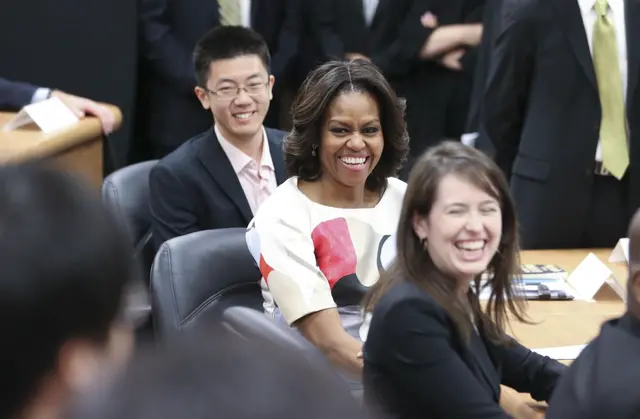Chief budget negotiators in the U.S. Congress struck a budget agreement on Tuesday, avoiding a looming government shutdown on Jan. 15.
President Barack Obama welcomed the bipartisan effort, and the Senate and the House are expected to vote on the proposed deal within days.
Senate Budget Committee Chairman Patty Murray and House Budget Committee Chairman Paul Ryan, the top lawmakers on budgetary issues in their respective chambers, unveiled the plan at a news conference on Capitol Hill.
The agreement, though falling short of a long-sought grand bargain that solves the overarching fiscal issues, would set spending levels for the federal government over the next two years and turn off part of the automatic spending cuts, known as the sequester.
It allows government discretionary spendings to rise from caps set by the sequester to about 1.012 trillion U.S. dollars in 2014 fiscal year and 1.014 trillion dollars for 2015 fiscal year, providing about 63 billion dollars relief to the automatic spending cuts over the next two years.
Increase in the outlays would be offset by a variety of spending savings, including requiring federal employees to contribute more to their pensions and raising some government fees, which would total 85 billion dollars in a decade.
The modest accord leaves the entitlement programs and the tax code untouched and will not extend the federal unemployment benefits program, which is set to expire at the end of December -- with an estimated 1.3 million Americans losing access to federal government-funded benefits.
"This agreement makes sure that we don't have a government shutdown scenario in January. It makes sure we don't have another government shutdown scenario in October. It makes sure that we don't lurch from crisis to crisis," said Ryan as he introduced the agreement.
"This deal doesn't solve all of our problems, but I think it is an important step in helping to heal some of the wounds here in Congress," said Murray.
A 29-member bipartisan congressional panel, led by Murray and Ryan, have been meeting for weeks to try to forge an agreement to fund the government beyond Jan. 15 and replace sharp automatic spending cuts. Its task was mandated in a budget deal sealed in October to end the 16-day partial government shutdown and raise the debt limit.
The panel has a Dec. 13 deadline to produce a plan.
The deal would at least give lawmakers -- and the U.S. economy -- a brief reprieve after three years of recurring fiscal fights. If passed, it will become the first budget that leaders of both parties have agreed to through a traditional budget process "in a few years".
Obama welcomed the development, calling the deal "a good first step" that should remove the prospect of another government shutdown.
"This agreement doesn't include everything I'd like -- and I know many Republicans feel the same way. That's the nature of compromise," Obama said in a statement, urging Congress to do more to boost the economy.
House Speaker John Boehner also expressed support for the deal, saying while it is modest in scale, it represents "a positive step forward."
The House is expected to hold a vote on the deal by Friday, before recessing for the rest of the year, and a Senate vote may come in several days.
The U.S. federal government was partially shutdown on Oct. 1, but was reopened after both chambers of Congress approved a deal late on Oct.16 to fund the government through Jan. 15 and raise the debt ceiling until Feb.7.
Obama has said that the 16-day partial government shutdown in October hurt the U.S. economic growth momentum.
U.S. Secretary of State John Kerry has said the shutdown had damaged the country's image abroad, warning politicians against another such scenario.
 简体中文
简体中文

